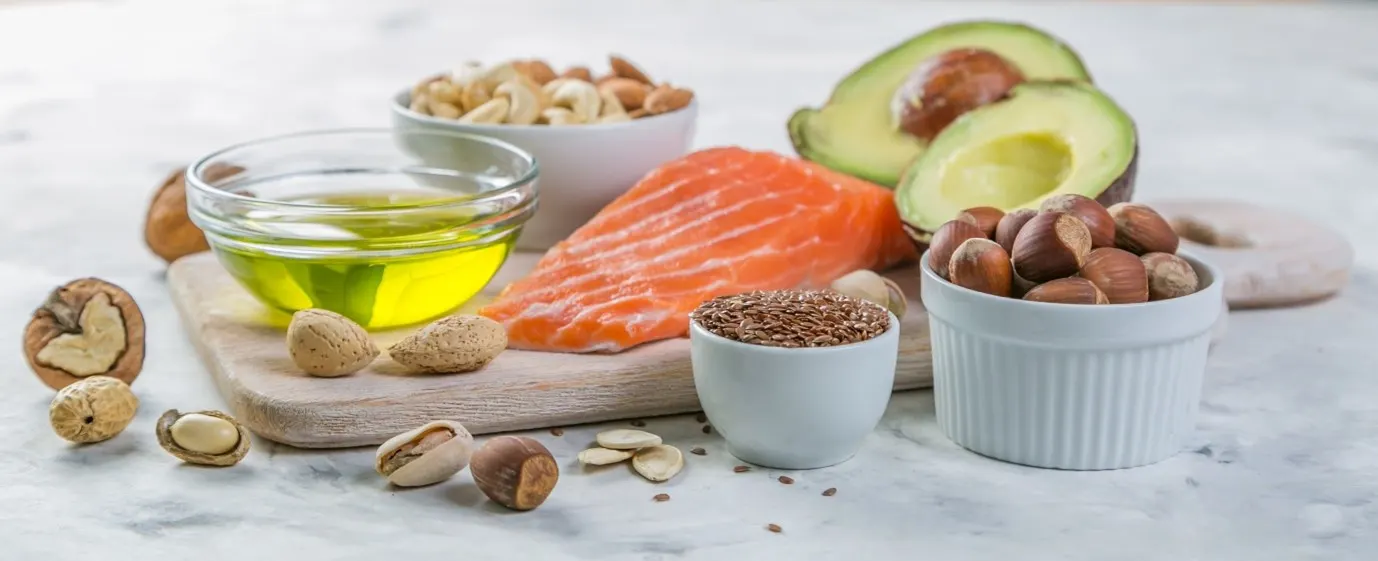DIET TO PREVENT OILY SCALP
Find out what causes oily hair and how changing your diet for oily scalps can help.

You’re rushing because it’s time to get onto your Zoom call, you sit down, switch on the camera, only to realise that your hair looks like somebody poured a bucket of grease on it.
Oily hair causes that feeling of dread to wash over you, something that almost everyone experiences at some point. Nobody likes to have oily hair, even if you can hide it by tying it up. Fret not, as there are solutions available on how to avoid greasy hair. Updating your diet for oily scalp is an important step. But first you need to understand why it happens.
What causes Oily Scalp and Hair?
What Causes Oily Scalp and Hair?
There are various reasons for your sebaceous glands to produce excess oil:
• Poor hair care is the number one culprit. Not shampooing regularly or taking enough care of your hair can cause a massive oil build-up on your scalp.
• Hormonal fluctuations aren’t necessarily in our control, but they can send signals to our scalp to produce more oil. This a common oily hair cause.
• Seasonal changes and weather fluctuations confuse your scalp and could be a contributor to excess oil.
• Over-washing is ironically a major cause. It can dry out your scalp and trigger an increase in oil production.
• An unhealthy diet and different medications can send the wrong signals to your scalp.
• Harsh hair products and excessive styling equipment can also cause an oily scalp, and reducing this is an easy solution on how to avoid greasy hair.
What Is The Connection To Dandruff?
Dandruff is caused by a fungus called Malassezia Globosa, which is normally found on your scalp. This fungus feeds on oil and breaks it down into products that can react with your scalp. Now this is completely normal. But when your scalp has excess oil, it provides fertile ground for this fungus to explode. This leads to red patchy skin, severe itching, and dead skin in the form of flakes. This is what we know as dandruff. If your hair and scalp is excessively oily and greasy, it is usually accompanied by oily scalp dandruff. One follows the other, and if you take care of your oily scalp, you will end up taking care of your oily dandruff. And there lies your answer on how to avoid oily scalp and get rid of dandruff.
How should you change your diet for oily scalp?
It is important to note that your food intake cannot cure dandruff. So don’t assume it’ll solve all your worries. But improving your diet can help to regulate the oil levels on your body, which is the main factor in dandruff. You should look at the following changes to your diet as a method on how to avoid oily scalp.
-
Sugar
You might have a sweet tooth that is hard to suppress, but consumption of high sugar products can cause a spike in your insulin levels. This invariably leads to a surge in certain hormones, which might increase the oil secretion on your scalp. Curbing your intake of sugar can control these oil levels and also reduce the occurrence of inflammation. -
Essential fats
Increase your consumption of omega 3 and omega 6 fatty acids. These have anti-inflammatory properties that can improve hydration and regulate sebum production on the skin. It can also work to reduce the effect of dermatitis. You can find these in salmon, tuna, peanut butter, flaxseeds, olive oil, fortified eggs, walnuts, avocado, chia seeds, etc. -
Garlic
Consume ingredients that are rich in the compound Allicin, like garlic and onion. Crushing or chopping garlic activates allicin, which contains strong anti-fungal properties. It might make more sense to apply it directly to your scalp, but eating garlic can help boost blood circulation and collagen production. This can help create a healthy digestive system that can impact your skin health. -
Milk and dairy products
You might have grown up drinking milk, but it might be time to reduce the intake of all dairy products. Dairy contains hormones that are meant for a calf to grow up healthy. These can break down in your system, triggering a spike in your sebum production and secretion. -
Zinc, Biotin and Vitamins
Zinc is a mineral that has antioxidant properties which can boost your immune system. It is effective in healing skin ailments and can help to regulate the amount of sebum on your skin. Biotin is a B vitamin that is essential for proper absorption of Zinc. Create a diet with balanced amounts of both. Adding Vitamin B6 to your diet can also help to regulate sebum production on your skin and a deficiency might aggravate dandruff. -
Refined carbs and Greasy food
Most dieticians will recommend that you cut down on heavy carbs and grease as a way to be healthy. But this might also be contributing to your oily scalp. Foods like this are tougher for your body to digest and can potentially spike your insulin levels. This has an impact on your oil levels, which can lead to overactive oil glands on your scalp. -
Alcohol and hydration
You should cut down on your alcohol intake, as this can dehydrate your body. It has a tendency to deplete your zinc and vitamin B levels that can disrupt the oil production on your scalp. You should instead drink enough water and cooling liquids that can keep your body temperature down. Higher body temperatures can increase secretions on your scalp and cause you more strife.
Overall, if you employ a healthy hair-care routine using a good shampoo for oily scalp, you can avoid any excess oil from developing on your head. Try the Head and Shoulders Cool Menthol shampoo that brings the cooling effect of menthol to your scalp, while removing any excess dirt and oil. Using products like the Head and Shoulders Silky Black or the Head and Shoulders Neem anti dandruff shampoo can open your hair strands and allow your hair to get back to its original health. All these shampoos have been built to get rid of the excess oil on your scalp, to prevent oily dandruff from making an appearance.
An oily scalp is something that you will see often in your life. It isn’t like you can get rid of all the oil on your head completely. But you can at least rest easy knowing that whenever it comes up, you have a solution within arm’s reach.



